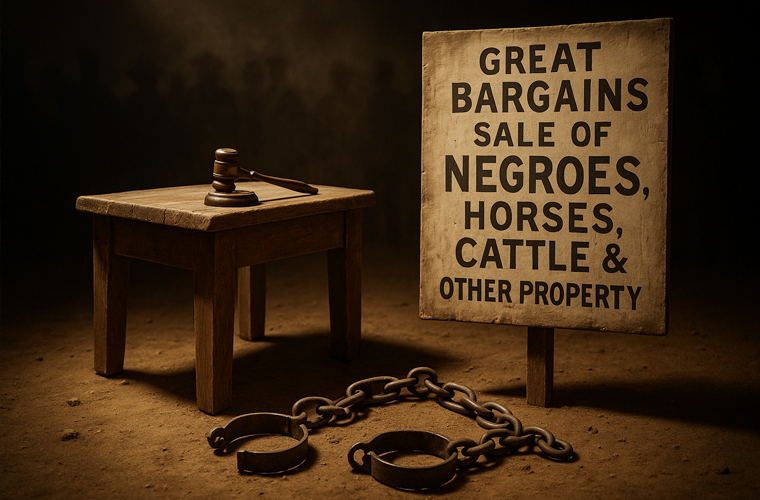That made it legal to kill a slave at will
The legal framework of colonial Virginia systematically dehumanized enslaved Black individuals, codifying their treatment as property and enabling severe punishments, including death, without consequence for white enslavers. These laws, often enacted by plantation-owning legislators, starkly contrast with other forms of servitude practiced elsewhere, such as in continental Africa, by stripping away basic human rights and institutionalizing racial oppression.
1669: Casual Killing Act
The Casual Killing Act of 1669 legalized the killing of an enslaved person during “correction,” declaring that such acts could not be presumed to stem from “prepensed malice.” This law effectively removed penalties for enslavers who killed a slave while administering punishment, reinforcing the notion that enslaved individuals were mere property.
1672: Legalization of Violence Against Resisting Slaves
By 1672, it became legal to wound or kill an enslaved person resisting arrest. Owners of slaves killed during such resistance were financially compensated for their “loss.” Additionally, rewards were offered to Native Americans who captured and returned escaped slaves to the authorities.
1639/40: Exclusion from Armament
The General Assembly excluded Black individuals from the requirement to possess arms, marking an early step in restricting their ability to defend themselves or participate in colonial militias.
1662: Hereditary Slavery
Legislation in 1662 mandated that any child born to an enslaved woman would also be enslaved, ensuring the perpetuation of slavery across generations.
1667: Baptism and Freedom
Virginia lawmakers clarified that baptism did not grant freedom to enslaved individuals. This law countered arguments made by some enslaved Christians in the 1640s and 1650s who sought freedom for themselves or their children based on their religious status. Slave owners were encouraged to Christianize their enslaved laborers without fear of losing their “property.”
1668: Taxation of Free Black Women
Free Black women, like enslaved women over 16, were deemed tithable, meaning they were subject to taxation despite their free status, unlike white women.
1680: Restrictions on Movement and Self-Defense
The General Assembly imposed severe restrictions on enslaved individuals, including:
- Prohibiting gatherings, such as funerals, to limit collective organization.
- Legalizing the killing of escaped slaves who resisted capture.
- Forbidding slaves from arming themselves for any purpose (punishment: 20 lashes).
- Requiring written permission to leave a plantation (punishment: 20 lashes).
- Prohibiting slaves from raising a hand against any Christian (punishment: 30 lashes).
1691: Interracial Marriage and Outlying Slaves
Laws in 1691 banned interracial marriages, with white individuals married to Black or mulatto partners facing banishment from the colony within three months. A systematic plan was established to capture “outlying slaves,” with owners compensated if such slaves were killed during capture. English women giving birth to a mulatto child faced a fine of 15 pounds sterling or five years of indentured servitude if unable to pay. Mulatto children born to white indentured servants were subjected to a 30-year indenture. Emancipated slaves had to be transported out of Virginia within six months.
1692: Denial of Legal Rights
Enslaved individuals were denied jury trials for capital offenses, with their fate determined by at least four justices of the peace. They were also prohibited from owning horses, cattle, or hogs after December 31, 1692.
1705: Further Dehumanization and Restrictions
A series of laws in 1705 further entrenched the oppression of Black individuals:
- Free men of color lost the right to hold public office.
- All Black, mulatto, and Indian slaves were classified as real property.
- Enslaved men were barred from serving in the militia.
- The indenture period for mulatto children born to white women was extended to 31 years.
- Interracial marriage penalties included six months in jail and a 10-pound fine for the white partner, and a 10,000-pound tobacco fine for ministers performing such marriages.
- Escaped slaves unable or unwilling to name their owners were sent to the public jail.
- Free and enslaved Black individuals were denied the right to testify in court.
These laws collectively ensured that enslaved and free Black individuals in colonial Virginia were systematically stripped of rights, treated as property, and subjected to brutal control measures, reflecting the deep racial and economic motivations of the ruling class.

